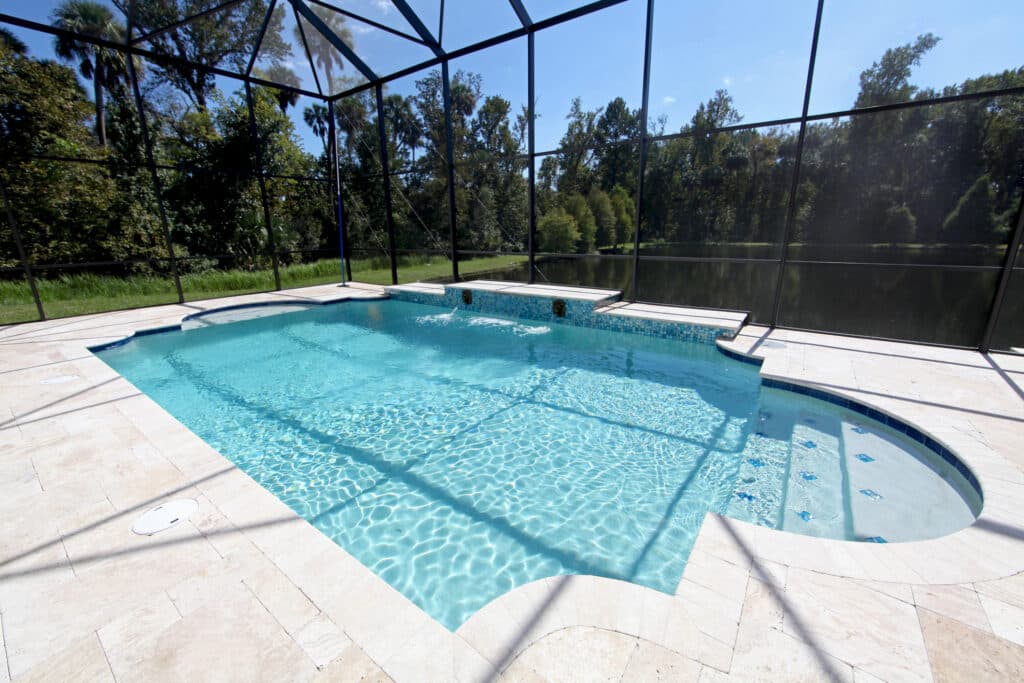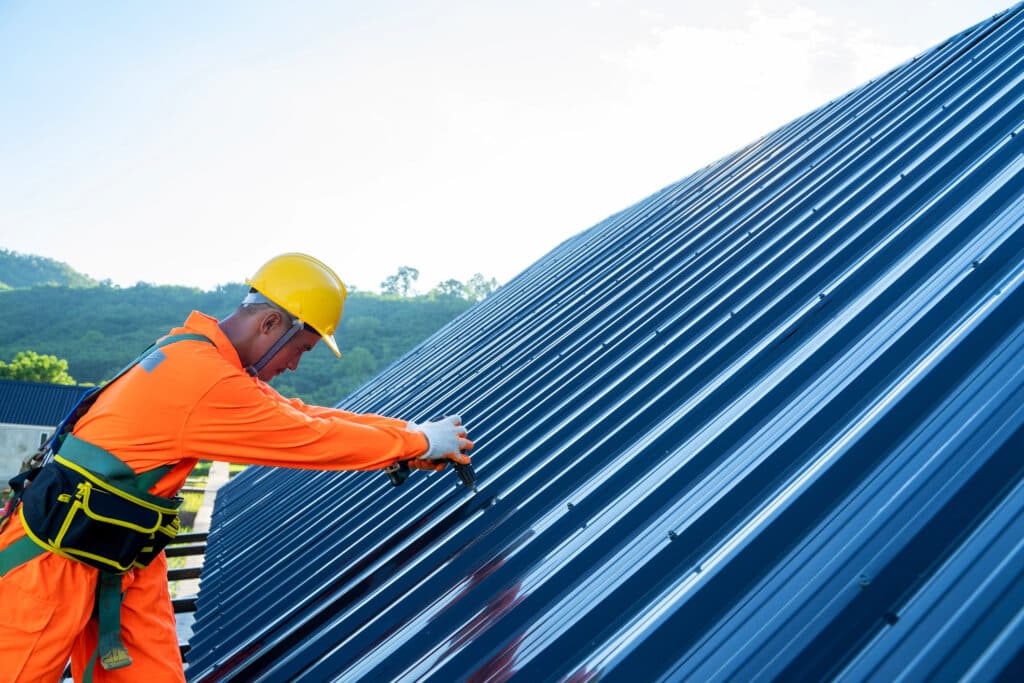Tips for Inspecting Your Pool Cage for Hurricane Damage
Hurricanes can cause significant destruction, affecting your home and outdoor structures like pool cages. After a storm, it’s essential to assess the damage to your pool cage to ensure it’s still safe and functioning as it should. Review our guide to inspecting your pool cage for damage, understanding potential issues, and determining the best next steps for repairs.
What Is a Pool Cage?
A pool cage, often called a screen enclosure, is made from aluminum frames and mesh screens designed to surround your swimming pool. These cages protect your pool area from debris, insects, UV rays, and animals without restricting your view or airflow. While these structures offer many great benefits for pool lovers, they can be vulnerable to high winds, heavy rain, and flying debris during a hurricane.
Check for Pool Cage Damage After a Hurricane
While pool cages are sturdy, they can take a beating during Florida’s hurricane season. When assessing any damage to your pool cage, focus on the following key areas:
Frame Integrity
Start by inspecting the pool cage’s aluminum frame. High winds can bend or warp the frame and affect its structural integrity. Look for any areas where the frame is visibly damaged. Examine the joints and connections for cracks or breaks. Pay special attention to areas where the frame connects to the house or the ground. Gently shake the frame in different places to test its stability. If any parts seem loose or wobbly, you’ll need to determine whether to repair or replace the structure.
Screen Condition
The mesh screens of your pool cage keep out insects and debris, but they can be ripped or torn in extreme weather. Look for any tears or holes in the screens that result from harsh wind or flying debris. Inspect the edges of the screens where they attach to the frame. Loose fittings or ripped screens can allow pests to enter. A pool service company can inspect the screen’s condition and offer recommendations on replacement.
Roof and Panels
Check overhead or roof panels for signs of damage. Look for dents, cracks, or missing sections that could cause water leaks or structural failure. Make sure there are no areas where water has pooled on the structure. Standing stormwater can cause further damage to the structure and increase the risk of biological growth.
Door Functionality
Open and close all pool cage doors to ensure they’re working correctly. If a door is sticking or won’t latch securely, there may be an issue with the hinge or frame. Inspect the weather stripping around the doors for any wear or damage. Properly functioning door parts are essential for keeping out insects and debris.
Document the Damage
Once you’ve completed your inspection, it’s essential to document any damage you find. Take clear photographs of the affected areas and make notes about the specific issues. Documenting damage to your pool cage will be invaluable if you need to file an insurance claim or hire a contractor for repairs.
Understand Your Repair Options
You have several options for repair, depending on the extent of the damage:
DIY Repairs
You may be able to do a DIY repair for minor items, like small tears or holes in the screens or minor frame issues. Screen repair kits can be found at hardware stores, allowing you to patch small holes in the screen efficiently. You may also be able to tighten loose fittings or replace damaged screen sections yourself without professional help.
When to Call a Professional
If you notice significant damage to the frame or roof of the pool cage or are unsure about its condition, it’s advisable to contact a professional pool service company. Experienced contractors can assess the damage, thoroughly evaluate the pool cage’s overall stability, and recommend appropriate repairs.
They can also ensure that any repairs meet local building codes and regulations. If the damage is extensive, replacing the entire pool cage may be more cost-effective than paying for multiple repairs. This option can be advantageous. A new pool cage will offer enhanced durability and updated features, such as stronger frames and higher-quality screens designed to handle Florida’s climate and weather.
Take Preventive Measures to Prepare for Future Hurricanes
Consider implementing preventive measures to minimize potential damage during future storms:
- Reinforce the Frame: Consult a professional about reinforcing your existing pool cage’s frame. Reinforcements may involve adding support brackets, braces, or heavy-duty hurricane straps to help the pool cage withstand the force of high winds.
- Upgrade the Fasteners: Make sure that all screws and fasteners are corrosion-resistant. Rust can weaken the fasteners, making them more susceptible to damage during storms.
- Upgrade the Screens: Consider upgrading to heavy-duty screens designed for harsh storm conditions. These screens feature materials such as reinforced polyester or fiberglass that are more resistant to impact, tears, and damage.
- Maintain Your Garden: Regularly trim trees and shrubs around your pool area to get rid of any weak branches that could break off and damage the enclosure during high winds.
- Store Outdoor Furniture: Bring in or securely fasten your patio furniture, planters, and other loose items that could blow away or hit the cage at high wind speeds. Use heavy-duty tie-downs for larger items you can’t move.
- Regular Maintenance: Check your pool cage regularly for maintenance needs. Maintaining your pool cage includes tasks such as cleaning the screens, tightening loose fittings, and inspecting for signs of wear.
Ensure Your Pool Cage’s Longevity and Safety After a Hurricane
Assessing the damage to your pool cage after a hurricane is essential before submitting your insurance claim. By thoroughly inspecting its key areas, documenting any damage, and understanding your repair options, you can keep your pool cage safe and functional for years. Also, take some preventive measures to protect your investment from future storms. Always prioritize safety and consider professional assistance when necessary to ensure safe and correct repairs for your pool cage.



